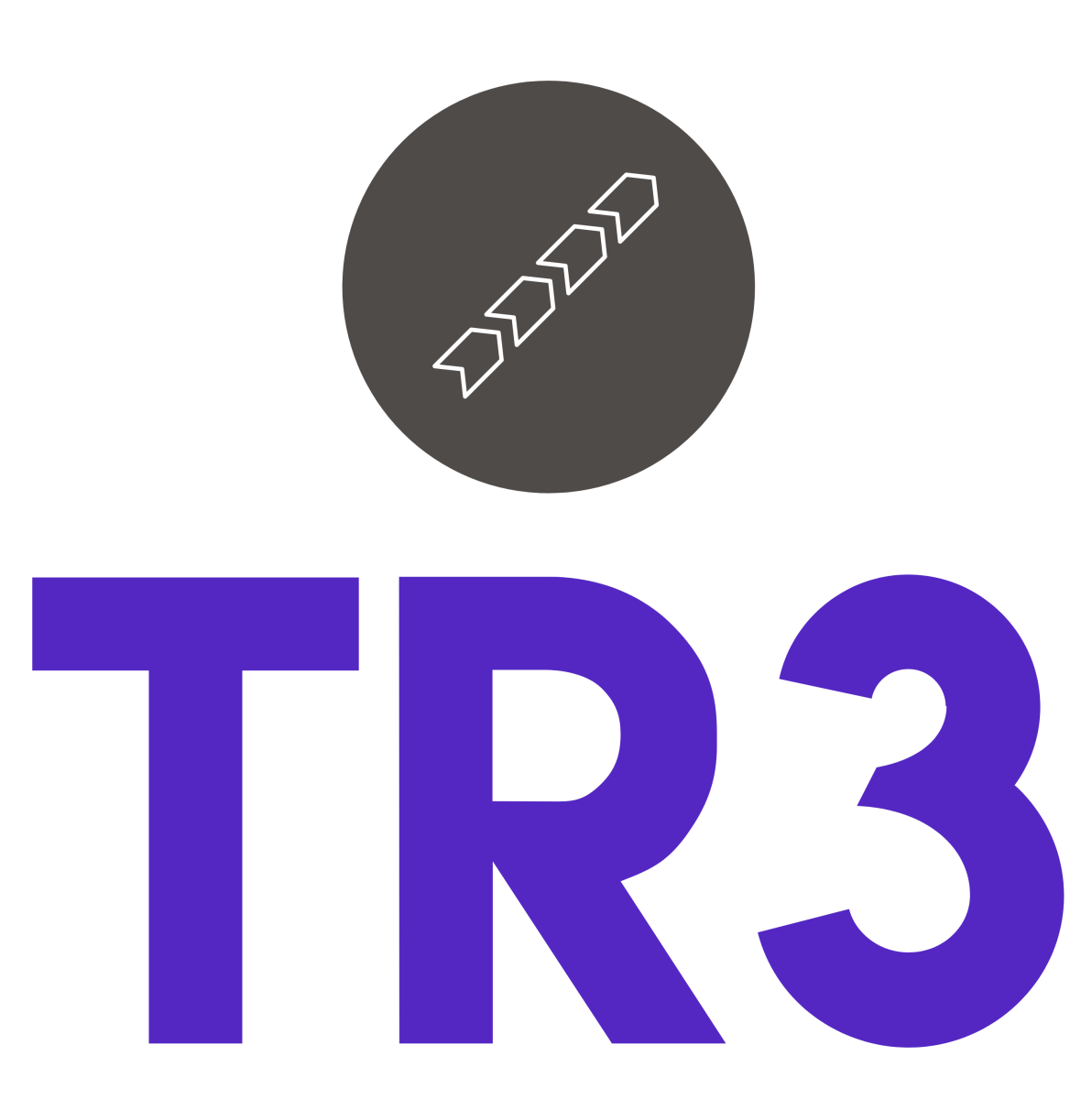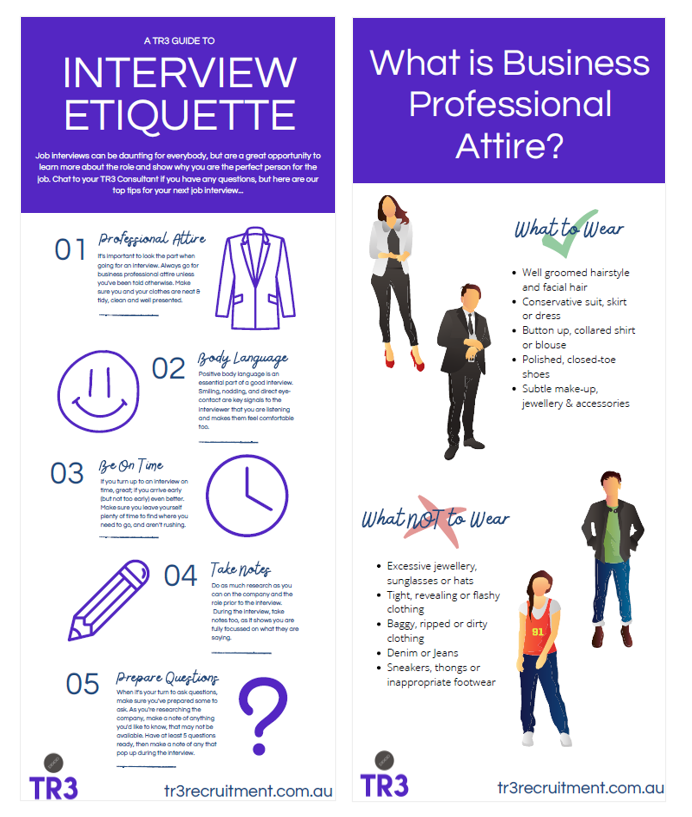A TR3 Guide to Answering Behavioural Interview Questions
What are Behavioural Interviews?
Behavioural interviewing is designed on the assumption that the most accurate predictor of future performance is past performance in a similar situation. To do this, it focuses on experiences, behaviours, knowledge, skills and abilities that are job related.
Traditional interviewing questions ask you general questions such as "Tell me about yourself." The process of behavioural interviewing is much more probing and works very differently. Because of this your responses need to be specific and detailed in the interview.
In order to ace your responses, you need to tell the interviewer about a particular situation that relates to the question, and not a general one.
The best way to ensure you are giving this type of response is by following the STAR Method.
The STAR Method
The questions you are asked in a Behavioural Interview are directly linked to the skills deemed necessary to be successful in that role. For example, if successful leadership experience is necessary for the position, you may be asked to talk about an experience in which you lead a team to success.
During a behavioural interview, always listen carefully to the question, ask for clarification if necessary, and make sure you answer the question completely. Your interview preparation should include identifying examples of situations on your resume where you have demonstrated the behaviours a given company seeks. However in order to provide credibility to these examples and to ensure they appropriately relate to the skillset in question, you should ensure your response includes the following:
SITUATION | Give an example of a situation you were involved in that resulted in a positive outcome. What was the situation that caused you to demonstrate the skills you are highlighting? Ensure that you give the appropriate amount of detail without getting bogged down in unnecessary information.
TASK | Describe the tasks involved in that situation. Who was involved? What was required?
ACTION | Talk about the various actions involved in the situation’s task. What did you do? Why did you choose this course of action?
RESULTS | What results directly followed because of your actions. What were the outcomes that your actions caused? What did you learn from this?
Tips for applying the STAR Method effectively
Before the interview process, identify two or three of your top selling points and determine how you will convey these points (with demonstrated STAR stories) during the interview.
It is helpful to frame your answer as a story that you can tell. Typically, the interviewer will pick apart the story to try to get at the specific behaviour(s) they seek.
The interviewer will sometimes ask you open ended questions to allow you to choose which examples you wish to use. When a part of your story relates to a skill or experience the interviewer wishes to explore further, he/she will then ask you very specific follow-up questions regarding your behaviour. These can include "What were you thinking at that point?" or "Tell me more about your meeting with that person." or "Lead me through your decision process."
Whenever you can, quantify your results. Numbers illustrate your level of authority and responsibility. For example: "I was a shift supervisor." could be "As Shift Supervisor, I trained and evaluated 4 employees."
Be prepared to provide examples of when results didn't turn out as you planned. What did you do then? What did you learn? Your resume will serve as a good guide when answering these questions. Refresh your memory regarding your achievements in the past couple of years. Demonstration of the desired behaviours may be proven in many ways.
Alongside your most recent experiences, use examples from past internships, classes, activities, team involvements, community service and work experience. They can all provide rich examples that allow you demonstrate your skillset.
Example of a STAR Answer
SITUATION | During my time as a Personal Lender, I was responsible for managing various events.
TASK | I noticed that attendance at these events had dropped by 30% over the past 3 years and wanted to do something to improve these numbers.
ACTION | I designed a new promotional packet to go out to the local community businesses. I also included a rating sheet to collect feedback on our events and organized internal round table discussions to raise awareness of the issue with our employees.
RESULT | We utilized some of the wonderful ideas we received from the community, made our internal systems more efficient and visible and raised attendance by 18% the first year.
Final Tips
Behavioural questions can be difficult if you are not prepared. Re-read your CV multiple times, make notes of your key achievements and results, and be prepared to reference them often in your interview.
Always try to be conscious about what the recruiter is trying to find out about you by asking you a particular question. That was you can tailor your examples to highlight the correct skills.
Relax. Focus on exuding a calm confidence in your responses. No one knows your career better than you do, so be sure of yourself in the responses you give.





.png)
.png)

